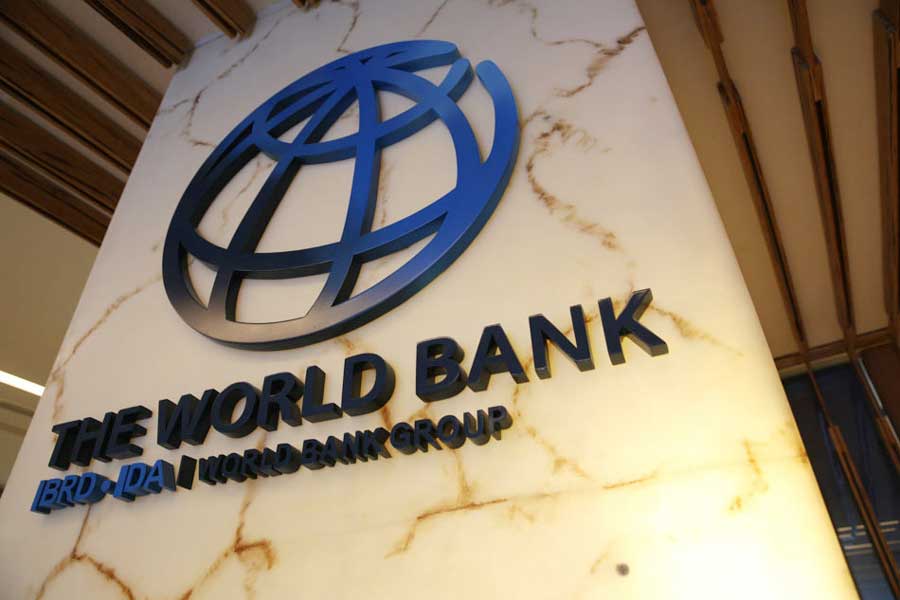
Published :
Updated :

In an interesting development, the World Bank (WB) apparently is considering diverting US$0.5 billion from the development funds it has given to Bangladesh over the years. The government has approached the lender for two instalments totalling $0.5 billion in the form of "budgetary-support credit as it needs to minimise growing budget deficit." This would indeed be a departure from the norm, as the original plan had been to provide the government a total of $1.0 billion -- $250 million and $750 billion in two instalments. The latter would have come from WB's Green, Resilient Inclusive Development (GRID) programme. Now that addressing the budgetary deficit is increasingly becoming more difficult, the plan for financing it with external support is also being revisited.
Bangladesh's inability to expedite the implemention of its foreign-assisted development projects over many years has been a constant irritant -- both for funding agencies and also the government and this requires a closer scrutiny. It is interesting to note that successive national budgets have simply grown in size. Again, every proposed budget has had to be trimmed in the form of revised annual development plans when it became apparent that the capacity to both absorb billions of dollars in soft loans/grants and implement the same was missing from the equation. For years development partners (and their respective financial institutions) giving loans have been insisting on reforms. Unfortunately, when it came to reforms, successive governments have doggedly avoided going that way or going half-way and then expecting bilateral / multilateral agencies to accept the status quo.
What is now clear is that the WB is having a second thought about billions of dollars stuck in the development pipeline in the country. According to reports carried in this paper, "at a tripartite meeting among the ERD, the WB and project-implementing agencies in the first week of March, the Washington-based lender warned of pulling out the funds from the WB-funded slow-moving projects". Some eight slow-moving projects have been discussed with funds committed ranging from $100 -$700 million. There are projects here that have seen only partial implementation and a fraction of the funds committed utilised.
Indeed, when it is seen that public agencies have failed to utilise the billions committed to development projects and that the failure to increase the capacity of project implementation agencies, who can blame the WB for opting to withdraw idle funds? According to a recently released report of the Economic Relations Division (ERD), the confirmed development assistance has ballooned to $50.35 billion as of the last fiscal year (FY 2021-22). How did things get so bad? Economists have a different perspective on this issue. They say that a lack of accountability of implementing agencies is partially to blame for the pileup of unutilised aid, year-on-year. Then what is the point of asking for more funds when there are billions lying idle? That question can be answered not just by the government, but also by funding agencies. So on the one hand there is disbursement, which apparently has picked up recently. Nothing much has improved on the implementation side. Yet, multilateral and bilateral development partners, including the WB, have continued to commit funds for specific projects and work done on those projects. Although the rate of implementation increased by 5.5 per cent in FY22 over FY21, things were not so rosy for the many fiscal years in the past which has contributed (negatively) to the buildup in overseas development assistance fund.
As pointed out in an ERD report, such slow implementation of projects results in slow disbursement of aid; which leads to time and cost overruns. This in turn, leads to increased borrowing from domestic sources. ERD believes that projects are often taken up without proper planning and feasibility studies are seldom conducted prior to project design.
There is a lack of requisite training for those involved with project formulation and when funding dwindles, cost overruns occur long before project commencement. Since ERD is part of the government machinery, what excuse is there for not accepting its observations? This has been going on for decades. While it is easy to cut project aid from the budget, is it impossible to make those in charge of these projects accountable? Precisely, how is the government's objectives fulfilled if large numbers of projects fail to get off the ground, especially when these are foreign-funded ones. The lack of accountability and transparency leads not only to the threat of cancellation from lending institutes, but also to set the stage for souring relations. Does the country benefit from any of those?
The time has surely arrived to take a step back and look at what works and what doesn't. This is election year and it is understandable that policymakers would want to complete and commission as many projects it can before the electoral fanfare arrives. But without meaningful reform, a lot of those projects will simply not be completed and the government's credibility as a reliable development partner will be brought increasingly into question. Time to cauterize the wound, while there is still time.
mansur.thefinancialexpress@gmail.com


 For all latest news, follow The Financial Express Google News channel.
For all latest news, follow The Financial Express Google News channel.